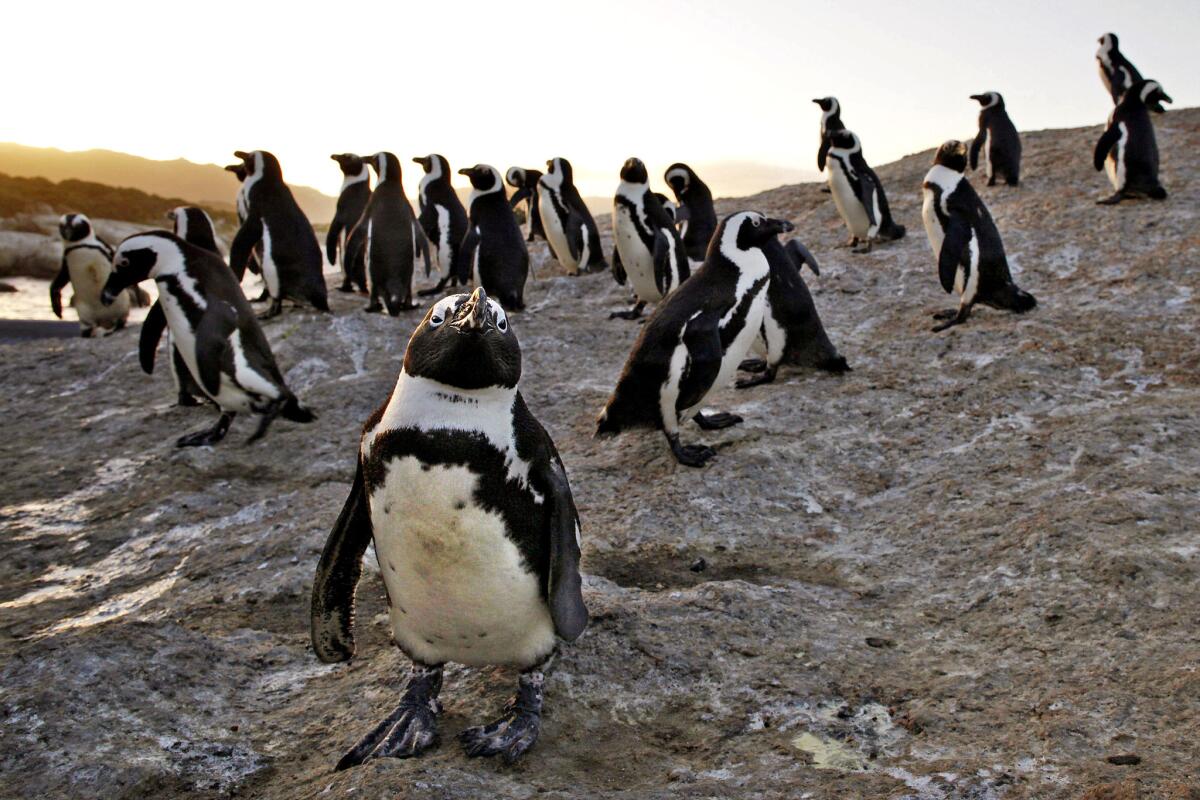African penguins are being ‘trapped’ by climate change

Climate change and overfishing off Africa’s southern tip have set a “trap” for endangered African penguins leaving their nests.
The young penguins swim thousands of miles from where they hatched, following biological signposts advertising a buffet of anchovies and sardines. What they don’t realize is the buffet seems to have closed.
When the birds arrive, their favorite food is almost gone, replaced by less nutritious gobies and jellyfish. This is what scientists call an “ecological trap,” in which animals mistakenly settle in habitats degraded by environmental changes.
A new study in Current Biology describes a recently discovered trap off the coast of South Africa and Namibia that has likely reduced local penguin populations by 50% and hurt juvenile birds’ chances of survival.
The research team, led by ecologist Richard Sherley of the University of Exeter, attached satellite trackers to 54 young penguins from colonies across the species’ breeding range in Namibia and South Africa. When the birds are old enough, they tend to disperse westward and northward.
The penguins follow the sure signs of edible fish: low ocean temperatures and the scent of plankton.
“These were once reliable cues for prey-rich waters, but climate change and industrial fishing have depleted forage fish stocks in this system,” the study authors wrote.
In Namibia, penguins are instead finding more gobies and jellyfish. Though these substitutes are edible, they don’t provide as many calories.
In recent decades, warming ocean temperatures and changes in salinity have also pushed traditional prey east, out of range for penguins living west of Cape Agulhas, Africa’s southernmost tip. This has triggered an 80% decline in the western penguin population.
Losing the fish has essentially broken a link in the middle of the food chain. This causes a “mismatch” in the ecosystem, in which penguins get faked out when they find lots of plankton but no fish.
Young penguins must learn to forage for themselves, and it may take them years to fully get the hang of finding their food. During this vulnerable period, they’re at risk of choosing the wrong habitat or falling into an ecological trap.
This is exactly what seems to be happening. Between 1978 and 2015, Namibia’s penguin population declined from more than 12,000 breeding pairs to about 5,800. In South Africa, the population shrank from 70,000 to 19,300 in the same time period, according to the International Union for the Conservation of Nature.
To ease the burden on the birds, Sherley and colleagues suggest limiting fishing in penguin areas when fish populations fall below critical thresholds.
MORE SCIENCE NEWS
Concerned about Trump, scientists are leaning into politics
How scientists plan to reduce the temperature in Los Angeles by 3 degrees
As bee populations dwindle, robot bees may pick up some of their pollination slack




